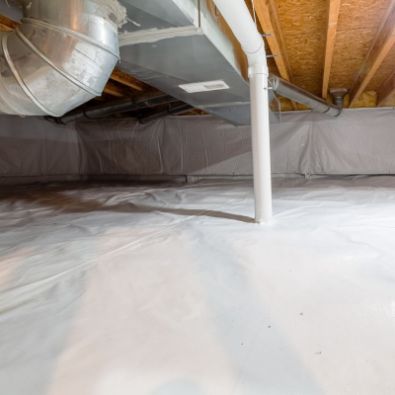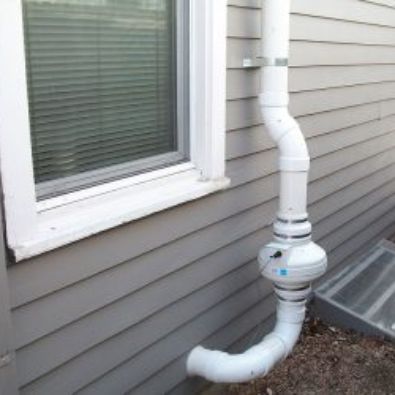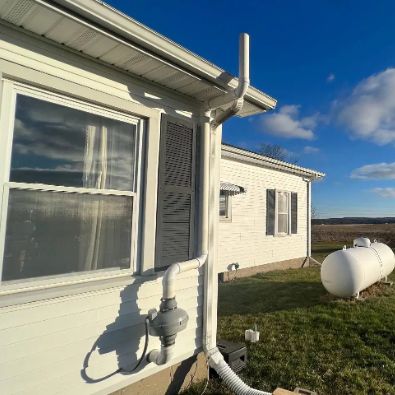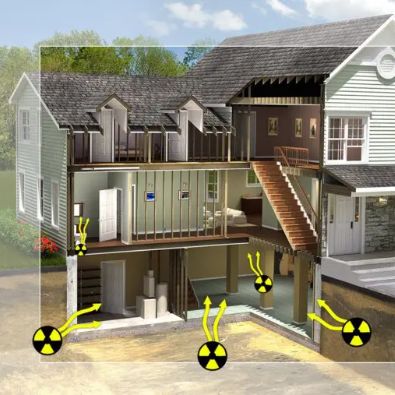Residential Radon Mitigation
Free Quote Click Here!Hurry! Call Now! Resolve Your Residential Radon Issues 319-231-4019
The Importance of Residential Radon Mitigation in Des Moines, Iowa
Radon is a naturally occurring, odorless, colorless, and tasteless gas that is produced by the breakdown of uranium in soil, rock, and water. It is the second leading cause of lung cancer in the United States and is a major health concern in Des Moines, Iowa. The Environmental Protection Agency (EPA) recommends that all homes be tested for radon and, if levels are found to be above 4.0 picocuries per liter (pCi/L), that a radon mitigation system be installed.At All Iowa Radon, we specialize in residential radon mitigation services in Des Moines and the surrounding areas. Our team of certified professionals can help you identify the source of radon in your home and develop a plan to reduce the levels to a safe level. We use a variety of techniques to reduce radon levels, including sealing cracks and openings in the foundation, installing a vent pipe system, and installing a radon mitigation fan.Radon mitigation is an important step in protecting your family’s health. Radon is a known carcinogen and can cause serious health problems if left unchecked. By having your home tested and installing a radon mitigation system, you can reduce your family’s risk of developing lung cancer and other health problems associated with radon exposure.At All Iowa Radon, we are committed to providing our customers with the highest quality radon mitigation services. Our team of certified professionals is dedicated to helping you reduce the levels of radon in your home and protect your family’s health. Contact us today to learn more about our residential radon mitigation services in Des Moines, Iowa.


Des Moines, Iowa is the capital of the state and the most populous city in Iowa. It is located in the center of the state, along the Des Moines River. The city is home to a diverse population of over 217,000 people, making it the largest city in the state. Des Moines is known for its vibrant culture, diverse economy, and strong educational system.
The city is home to a number of major employers, including Wells Fargo, Principal Financial Group, and Meredith Corporation. Des Moines is also home to a number of universities and colleges, including Drake University, Grand View University, and Des Moines University.
Des Moines is home to a number of attractions, including the Iowa State Capitol, the Des Moines Art Center, and the Science Center of Iowa. The city is also home to a number of parks, including Gray's Lake Park, Water Works Park, and the Des Moines Riverwalk.
Des Moines is also home to a number of annual events, including the Iowa State Fair, the Des Moines Arts Festival, and the Des Moines Marathon. The city is also home to a number of professional sports teams, including the Iowa Wild of the American Hockey League, the Iowa Cubs of the Pacific Coast League, and the Des Moines Menace of the Premier Development League.
Des Moines is also home to a number of unique restaurants, including the Cheese Bar, the Flying Mango, and the Zombie Burger. The city is also home to a number of unique shops, including the East Village, the Historic East Village, and the Valley Junction.
Des Moines is a vibrant city with a lot to offer. From its diverse economy and educational system to its unique attractions and events, Des Moines is a great place to live and visit.
Local Residential Radon Mitigation Services Call NOW! 319-231-4019



Radon is a naturally occurring radioactive gas that is found in the environment. It is produced by the breakdown of uranium in soil, rock, and water. Radon is odorless, colorless, and tasteless, and can be found in both indoor and outdoor air. In Des Moines, Iowa, radon has been a concern since the early 1980s.
In the early 1980s, the Iowa Department of Public Health began testing for radon in homes and businesses in Des Moines. The results of these tests showed that radon levels in the city were higher than the Environmental Protection Agency's (EPA) recommended action level of 4 picocuries per liter (pCi/L). This prompted the EPA to declare Des Moines a radon-affected area in 1985.
In response to the high levels of radon in Des Moines, the Iowa Department of Public Health began offering free radon testing to residents in 1986. The department also launched a public awareness campaign to educate people about the dangers of radon and how to reduce their exposure.
In the 1990s, the Iowa Department of Public Health continued to monitor radon levels in Des Moines and offer free testing to residents. The department also began offering radon mitigation services to help reduce radon levels in homes and businesses.
Today, the Iowa Department of Public Health continues to monitor radon levels in Des Moines and offer free testing and mitigation services. The department also works with local schools and businesses to ensure that radon levels are kept at safe levels.
Radon is a serious health concern in Des Moines, Iowa, and the Iowa Department of Public Health is committed to helping residents reduce their exposure to this dangerous gas. Through testing, public awareness campaigns, and mitigation services, the department is working to keep Des Moines residents safe from the dangers of radon.
Contact Us Now To Resolve Your Radon Issues!!
Our team of experts is ready to provide you with personalized guidance and deliver exceptional results.
